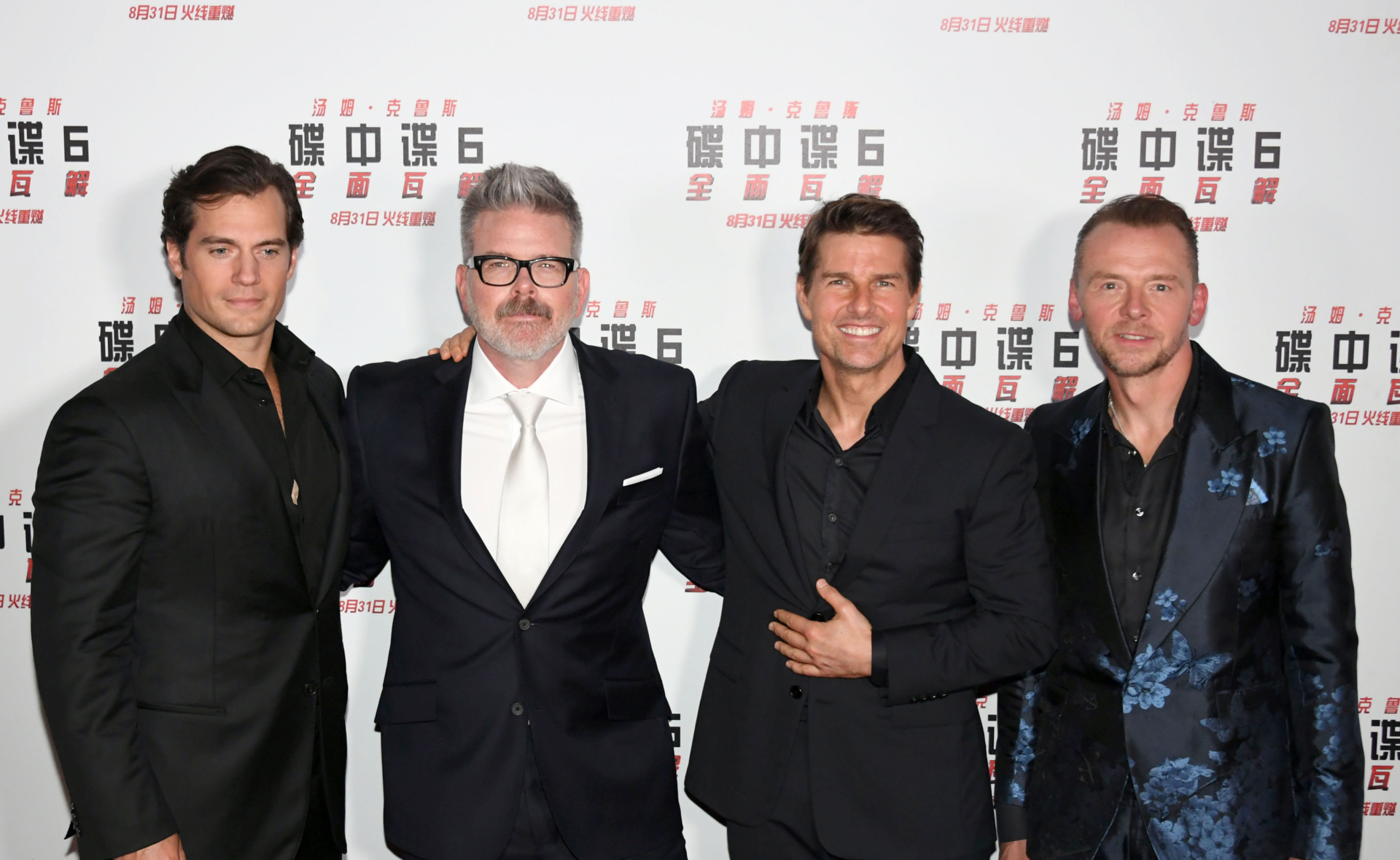
How deep are Hollywood’s ties to China? Beijing’s tentacles have ensnared most major studios — and many smaller ones — as well as a raft of A-list names: Steven Spielberg, Michael Bay, Jeffrey Katzenberg, the Russo brothers. Even Tyler Perry isn’t immune to China’s power.
In his new book Blood Money: Why the Powerful Turn a Blind Eye While China Kills Americans, Breitbart News Senior Contributor and Government Accountability Institute President Peter Schweizer maps out the numerous and troubling ways Beijing has infiltrated Hollywood and turned this quintessentially American industry into a vassal of the Chinese Communist Party.
As the book notes, China casts a longer shadow on Hollywood productions than you might think. Of the one hundred highest-grossing movies released between 2014 and 2018, 41 had Chinese investors.
Many of the most recognizable blockbuster titles in recent years were made with Chinese money — the Transformers, Kung Fu Panda, and even some of the Mission: Impossible movies.

(L-R) Actor Henry Cavill, director Christopher McQuarrie, actor Tom Cruise, and actor Simon Pegg attend the “Mission: Impossible – Fallout” press conference on August 29, 2018, in Beijing, China. (Visual China Group via Getty Images)
Dune and its upcoming sequel were both financed by Legendary Pictures, which is majority owned by China’s Wanda Group. Legendary also financed the Pacific Rim movies and the latest Godzilla blockbusters.
China’s influence on Hollywood is more than just financial.
For years, Beijing has exerted an insidious creative pressure on American filmmakers to make China look strong and the United States appear weak by comparison. Communist values like collectivism are championed while American-style individualism is ridiculed.
Schweizer’s book notes that Transformers: Age of Extinction portrays senior Chinese government officials as results-oriented and capable, while American officials are bumbling and generally incompetent.
The Paramount movie even has an American bad guy, played by Stanley Tucci. He is ultimately defeated by a Chinese woman named Su Yeming (played by actress Li Bingbing), who is working alongside hero Mark Wahlberg.

Actress Li Bingbing (right) actor Stanley Tucci (left) are seen on set filming “Transformers: Age of Extinction” on October 20, 2013, in Hong Kong, Hong Kong. (Visual China Group via Getty Images)
In Kung Fu Panda 3 — which was co-financed by China — the protagonist Po no longer focuses on himself as an individual, as he did in the previous two movies, but instead focuses on the collective, encouraging the villagers to take up arms in an animated “people’s war” against the antagonist.
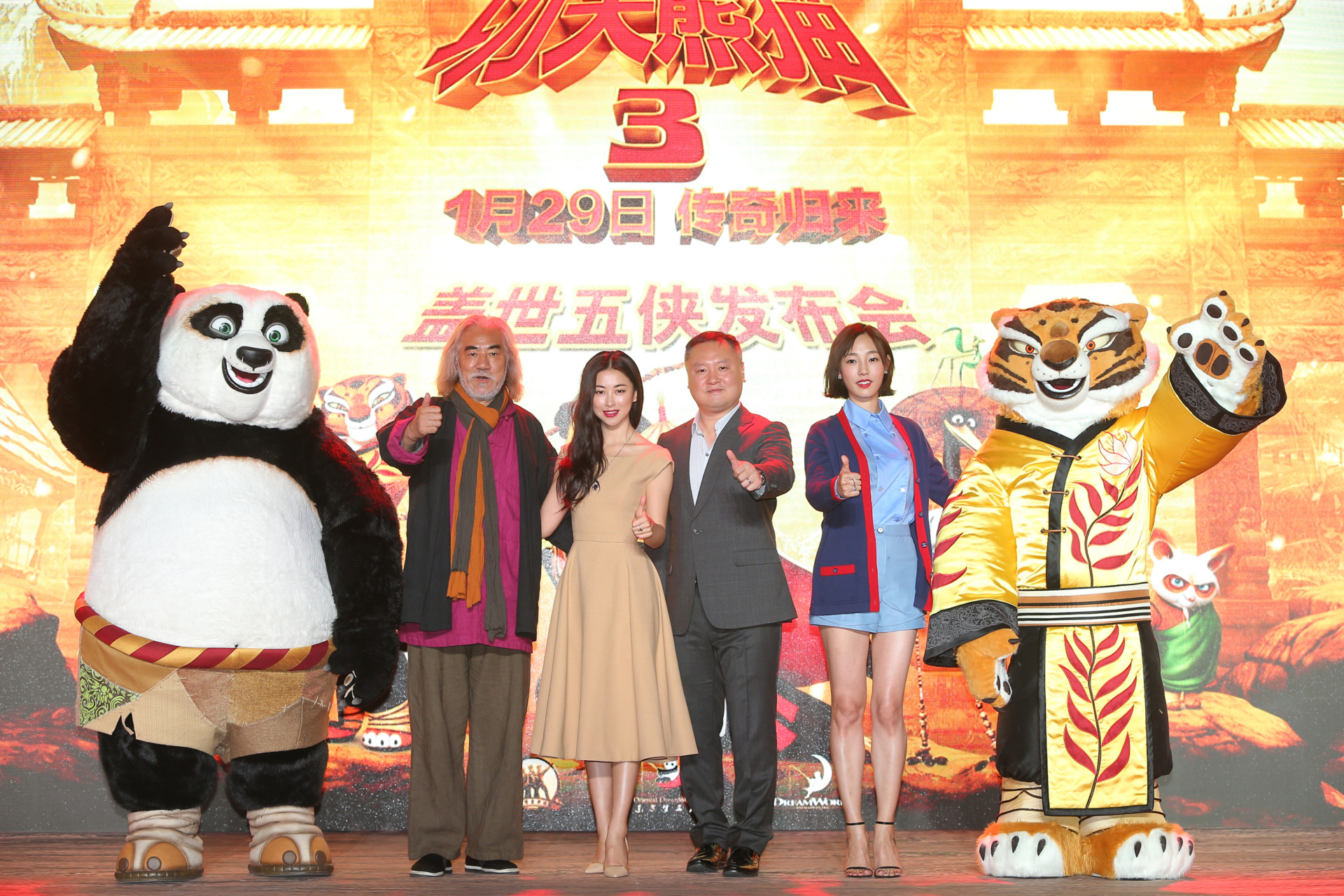
(L-R) Cartoon figure Po, producer Zhang Jizhong, actress Zhu Zhu, director Teng Huatao, actress Bai Baihe, and cartoon figure Tigress attend the press conference of DreamWorks Animation and Oriental DreamWorks’s American-Chinese computer-animated film “Kung Fu Panda 3” on December 15, 2015, in Beijing, China. (Visual China Group via Getty Images)
The Kung Fu Panda movies were produced by DreamWorks Animation, which was headed by Jeffrey Katzenberg. Under his leadership, the studio grew closer to China, announcing plans to construct a $330 million studio near Shanghai.
Katzenberg even sat down with Yu Zhengsheng, the chief of the Shanghai CCP, who encouraged him to produce “cultural products” that would help China’s image.
The result was Pearl Studio, which is majority owned by Chinese companies.
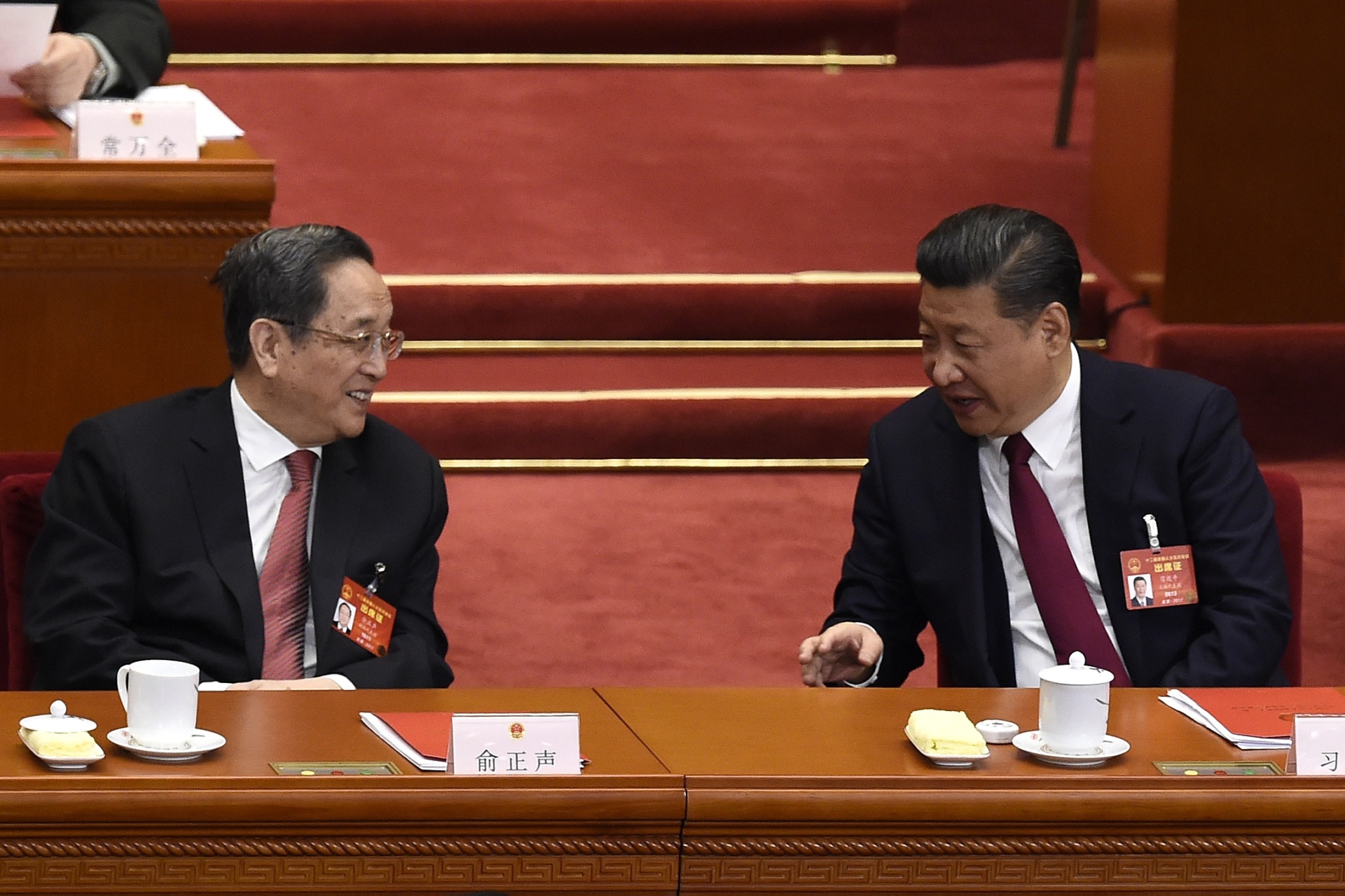
Chinese Communist Party Leader Xi Jinping (right) talks with Yu Zhengsheng (left), chairman of the National Committee of the Chinese People’s Political Consultative Conference (CPPCC), during the closing session of the National People’s Congress in Beijing’s Great Hall of the People on March 15, 2017. (WANG ZHAO/AFP via Getty Images)
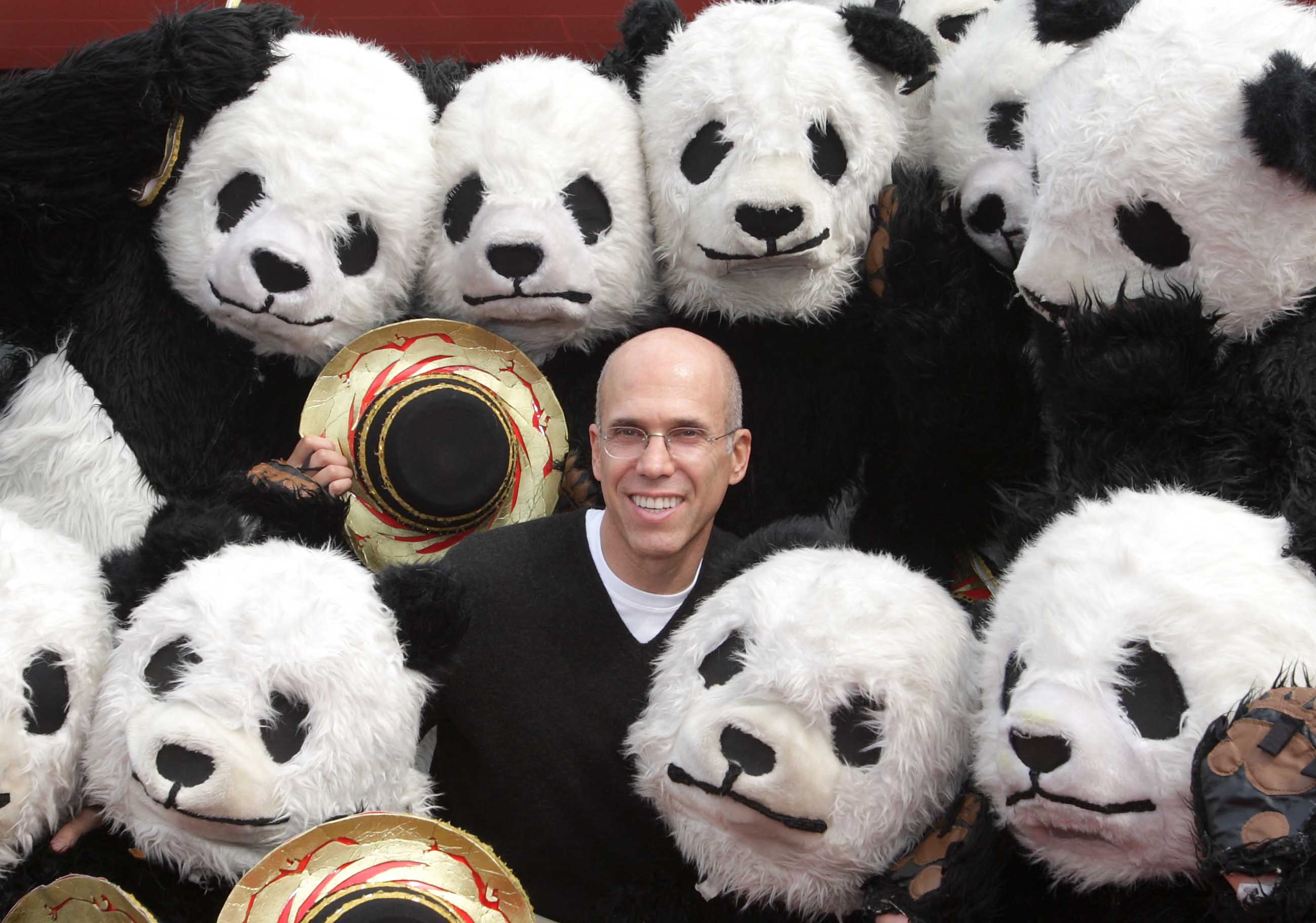
Jeffrey Katzenberg, CEO of DreamWorks Animation, visits the Jinsha Site on October 21, 2008, in Chengdu, Sichuan Province of China. (Wang Ruobing/Visual China Group via Getty Images)

DreamWorks CEO Jeffrey Katzenberg (third from right) with CCP representatives from Shanghai’s government unveil the master plan for the Shanghai DreamCenter on March 20, 2014, in Shanghai, China. (AP Photo)
Meanwhile, Katzenberg has moved on — to President Joe Biden’s re-election campaign. As campaign co-chair, he has pledged “all the resources” needed for Biden to win reelection in November.
Blood Money singles out the Russo brothers — Joe and Anthony, who directed several Disney-Marvel superhero blockbusters — as prime examples of how Hollywood talent can bend the knee for China.
During the making of the Chinese blockbuster Wolf Warrior 2, the Russo brothers provided advice on the film and introduced the Chinese director to contacts in the business, including visual effects studios in the U.S.
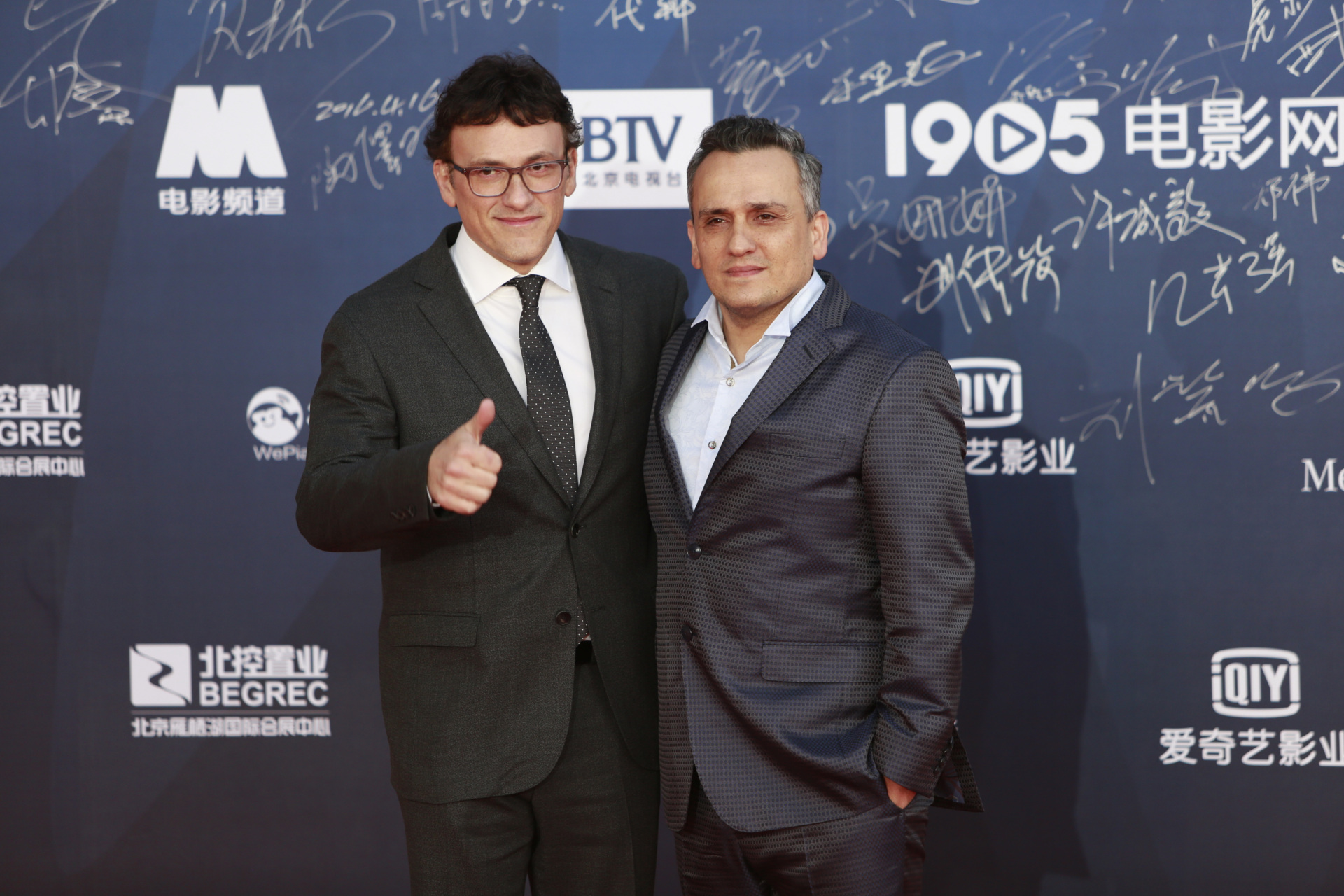
American directors Anthony Russo and Joe Russo arrive at the red carpet of the 6th Beijing International Film Festival on April 16, 2016, in Beijing, China. (Visual China Group via Getty Images)
The Russo’s even helped line up American actor Frank Grillo — who appeared in some of the brothers’ Marvel movies — to play the villain in Wolf Warrior 2.
Looking to strengthen their ties to China, the Russo brothers later set up a film company in Los Angeles called AGBO, which received a $250 million Chinese investment. One of the studio’s most successful productions was last year’s Oscar winner Everything Everywhere All At Once.
Schweizer’s book also notes how Steven Spielberg has become cozy with Beijing over the years.
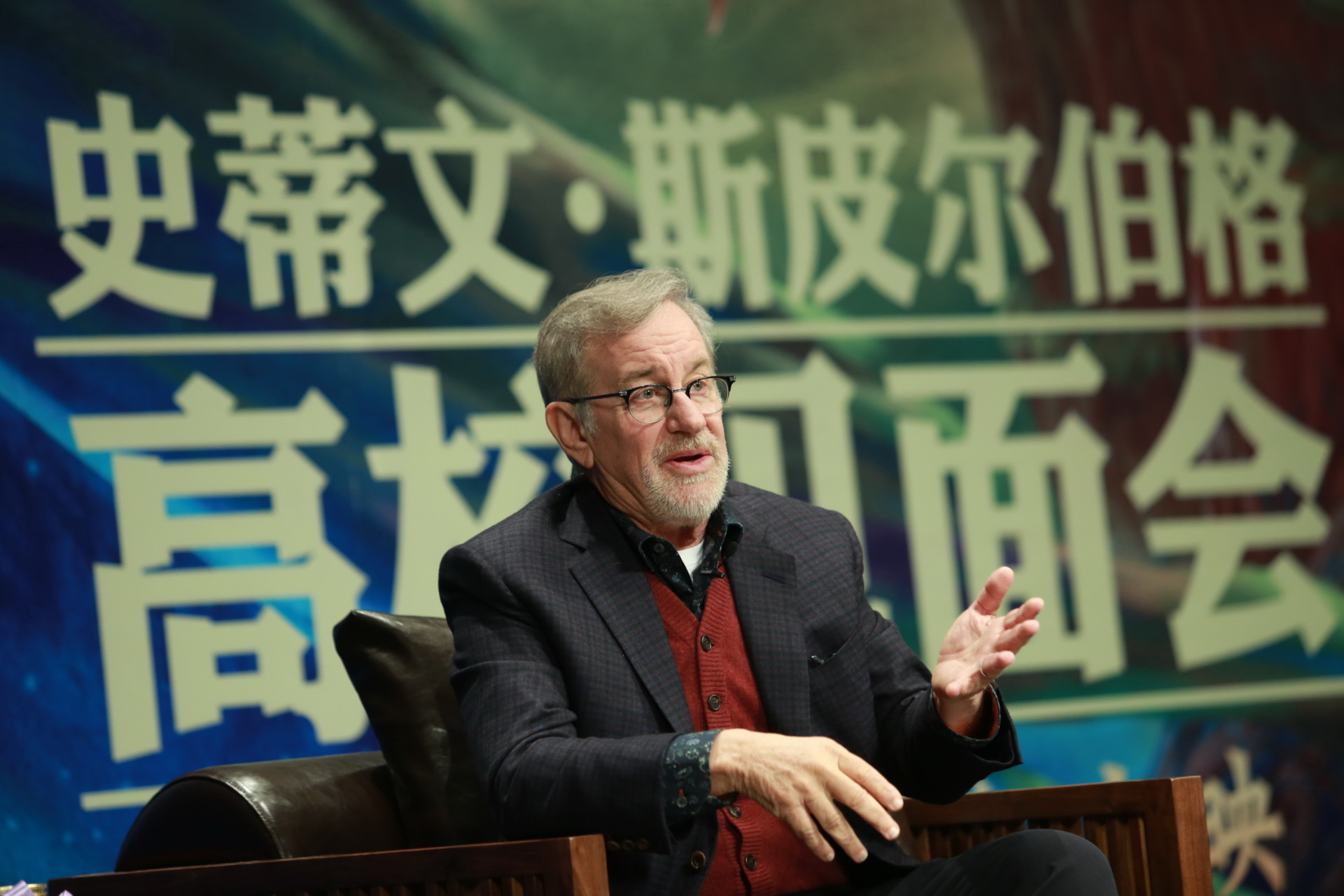
American director Steven Spielberg attends a promotional event for his film “Big Friendly Giant” at Tsinghua University on October 10, 2016, in Beijing, China. (Visual China Group via Getty Images)
In 2016, Spielberg allowed China’s Alibaba to buy a stake in his Amblin Entertainment. This marks a sharp reversal from 2008, when Spielberg ducked out of a project connected with the Beijing Olympics because he was concerned about the Chinese government’s involvement with human rights violations in Darfur.
As Breitbart News has reported over the years, Hollywood welcomed China with open arms in a Faustian bargain to gain access to Chinese audiences.
But as China’s film industry has grown and matured, Beijing has gradually shut its doors on Hollywood, allowing fewer American movies to play on local screens. Last year, not a single U.S. movie cracked China’s top ten list of top-grossing titles as local audience tastes have moved to domestic movies.
Even Disney movies are flailing in China, despite CEO Bob Iger’s best efforts to leverage his warm relationship with Chinese dictator Xi Jinping. Disney managed to score Chinese dates for its woke movies including The Little Mermaid, Elemental, and the latest Indiana Jones sequel — only to see them bomb with local audiences.
Hollywood wanted to use China to boost its bottom line. In the end, it was China that played Hollywood.
Follow David Ng on Twitter @HeyItsDavidNg. Have a tip? Contact me at [email protected]





